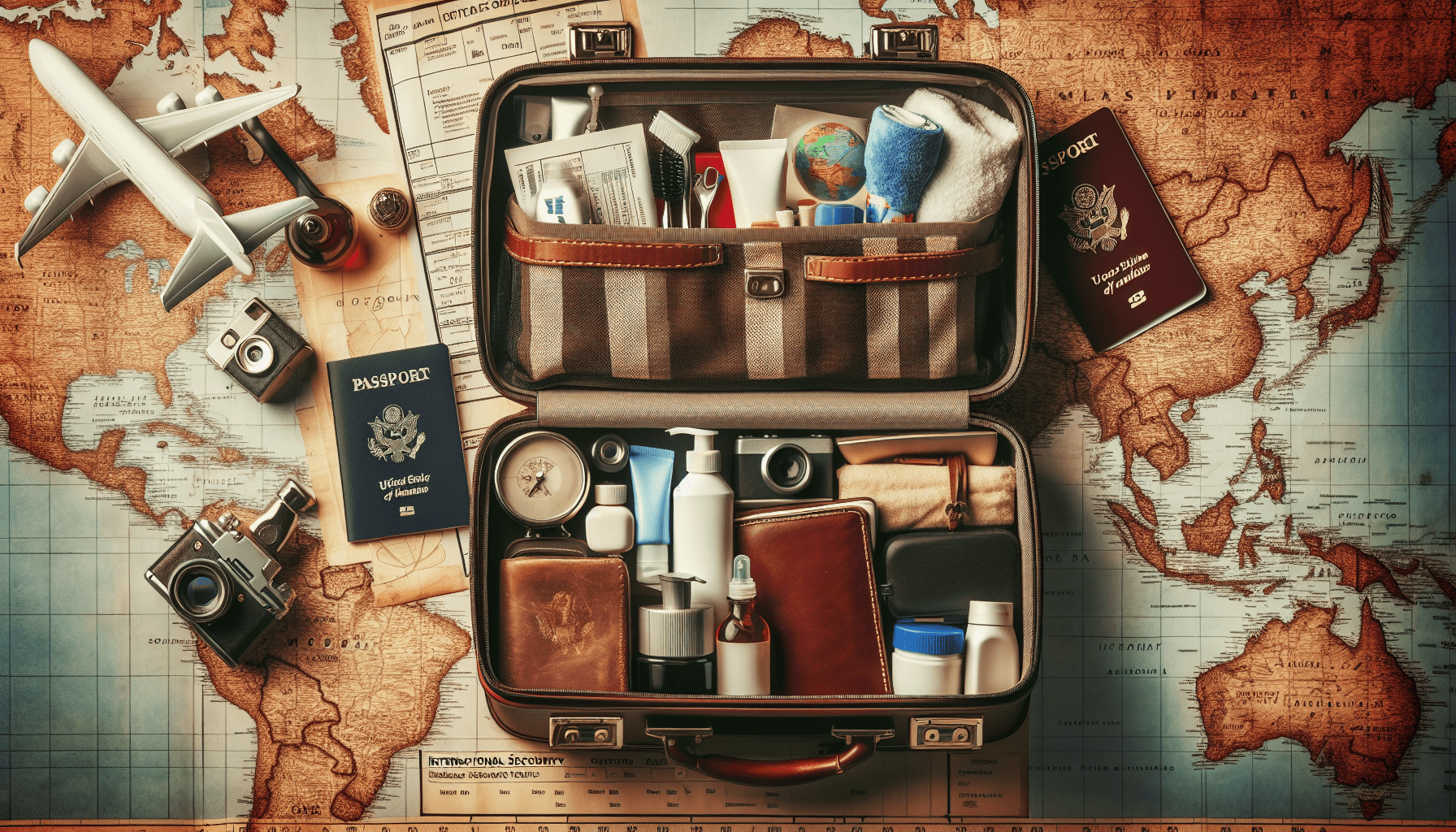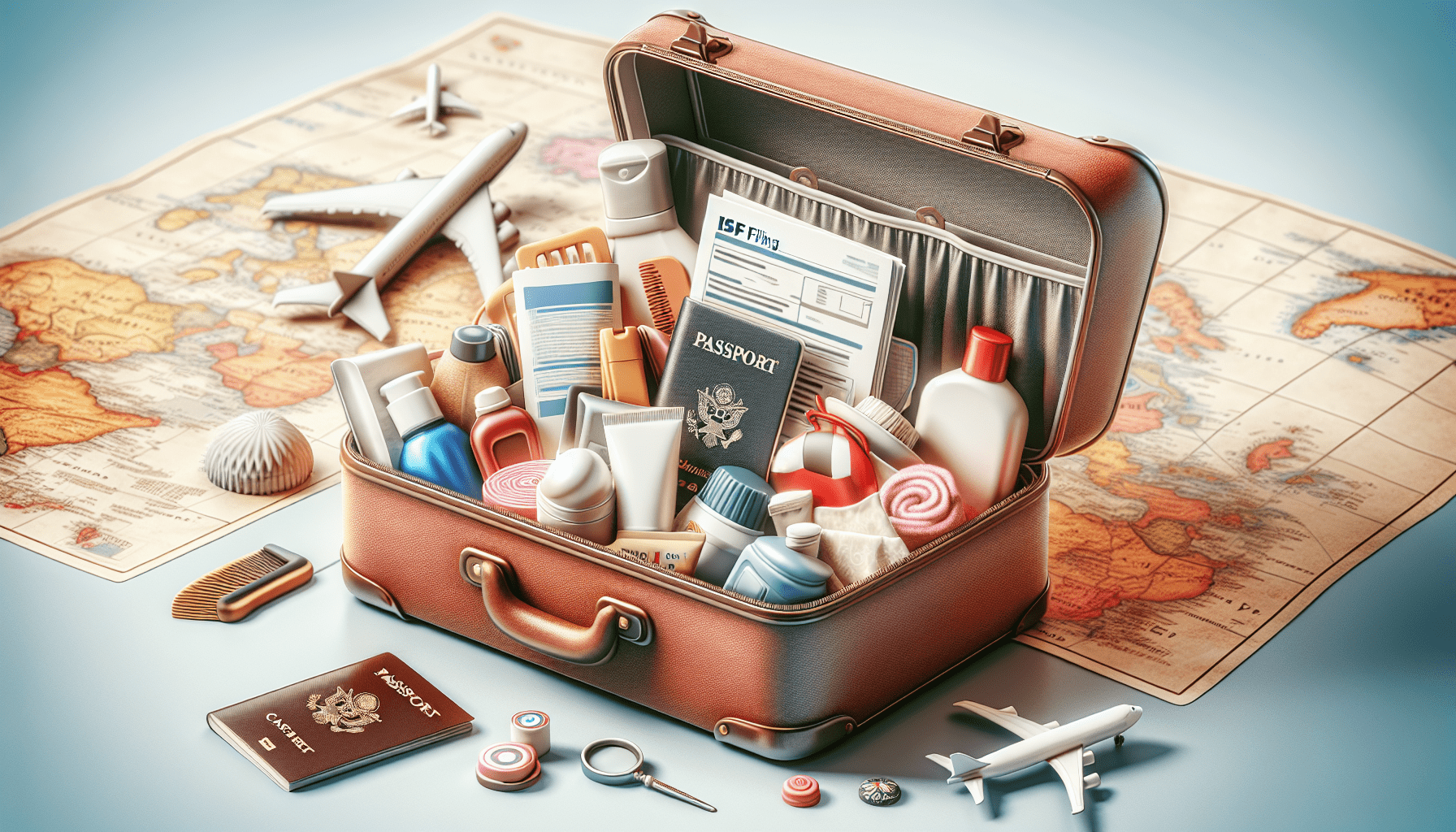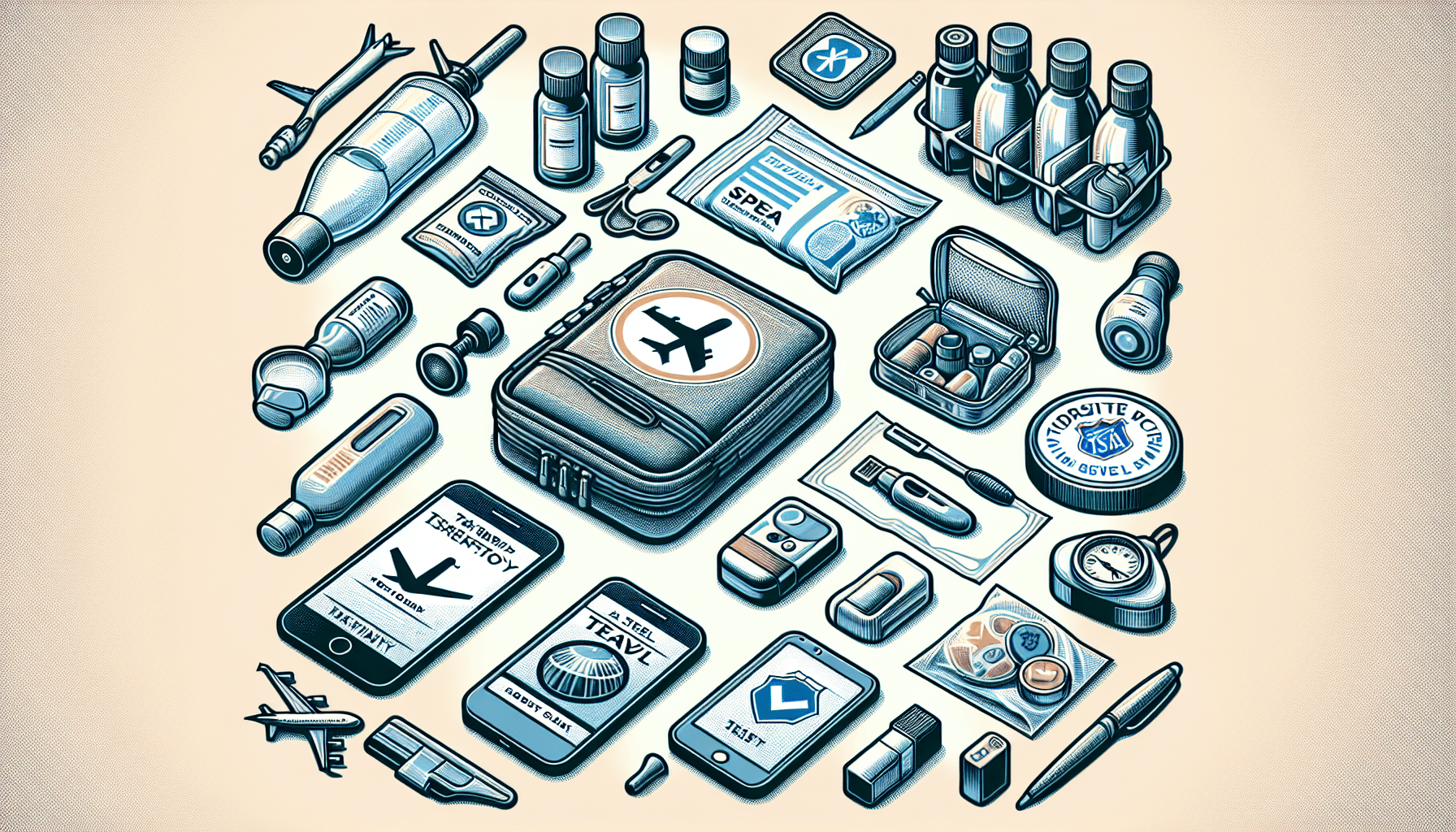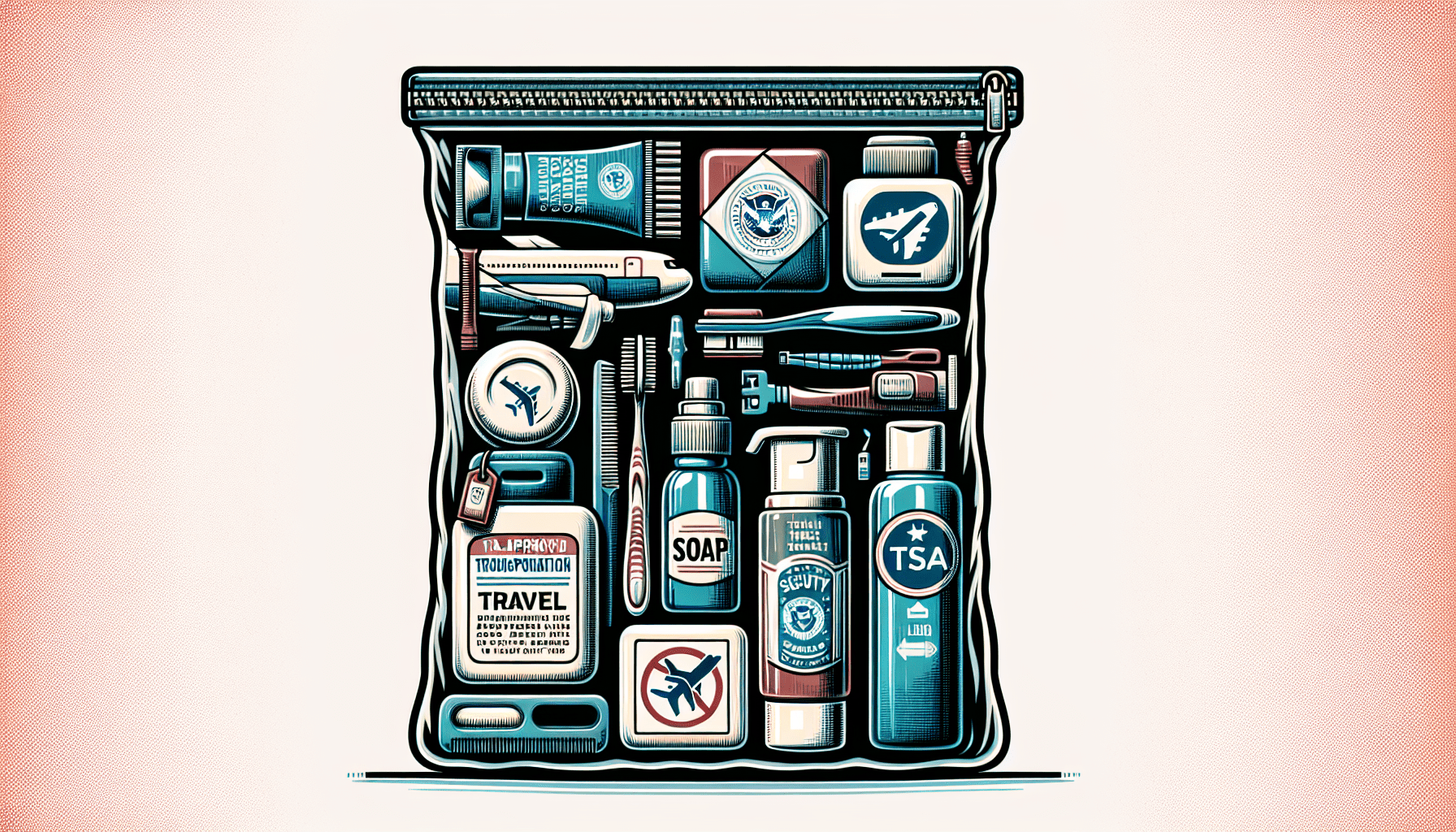Do I Have To File ISF For Travel Kits
Do I Have To File ISF For Travel Kits
If you’re planning on packing a travel kit for your upcoming trip, you may be wondering whether you need to file an Importer Security Filing (ISF). This article will break down the requirements for filing ISF for travel kits and provide you with all the information you need to ensure a smooth and hassle-free journey.

What is an Importer Security Filing (ISF)?
Before we delve into whether you need to file an ISF for your travel kit, let’s first understand what an Importer Security Filing actually is. An ISF is a mandatory filing required by U.S. Customs and Border Protection (CBP) for all shipments being imported into the United States by sea. The purpose of the ISF is to enhance the security of the international supply chain and to enable CBP to assess the risk of cargo entering the country.
Why is ISF Important for Travel Kits?
ISF plays a crucial role in ensuring the safety and security of imported goods, including travel kits. By requiring importers to provide detailed information about their shipments in advance, CBP is better equipped to identify potential security threats and take appropriate measures to mitigate those risks. Filing ISF for your travel kit is not only a legal requirement but also a way to contribute to a safer and more secure import process.
Do I Need to File ISF for Personal Travel Kits?
If you are a traveler packing a personal travel kit for your own use, you may not be required to file an ISF. CBP exempts certain shipments from ISF filing requirements, including goods that are intended for personal use and not for commercial purposes. Personal effects, such as clothing, toiletries, and other items commonly included in travel kits, are typically exempt from ISF filing.
What Constitutes a Personal Travel Kit?
A personal travel kit usually contains essential items that an individual needs for their trip, such as clothing, toiletries, medications, and personal care products. As long as the items in your travel kit are for your personal use and not for resale or commercial purposes, they are likely considered personal effects and exempt from ISF filing requirements. However, if you are unsure about whether your travel kit qualifies as personal effects, it’s always best to consult with a customs broker or CBP directly.

When Do I Need to File ISF for Travel Kits?
While personal travel kits are generally exempt from ISF filing requirements, there are certain circumstances where you may still need to submit an ISF for your travel kit. If your travel kit contains items that are not considered personal effects or if you are bringing items for commercial purposes, you may be required to file an ISF.
Commercial vs. Personal Travel Kits
Distinguishing between commercial and personal travel kits is essential to determine whether ISF filing is necessary. Commercial travel kits typically include items that are intended for resale or commercial use, such as samples, promotional items, or merchandise for sale. If your travel kit falls into the commercial category, you will need to file an ISF to comply with CBP regulations.
Traveling with Prohibited or Restricted Items
In addition to commercial considerations, you may also need to file an ISF if you are traveling with prohibited or restricted items in your travel kit. Certain items, such as agricultural products, firearms, or controlled substances, require special permits or approvals from CBP to import into the United States. Failure to declare these items on your ISF can result in delays, penalties, or even seizure of your goods.
How to File ISF for Travel Kits
If you determine that you need to file an ISF for your travel kit, you can follow these steps to ensure a smooth and compliant filing process:
Collect Required Information: Gather all the necessary information about your shipment, including product descriptions, values, and other details required by CBP for ISF filing.
Partner with a Customs Broker: Working with a licensed customs broker can help simplify the ISF filing process and ensure that your submission is accurate and compliant with CBP regulations.
Submit ISF in Advance: File your ISF at least 24 hours before your goods are loaded onto the vessel departing for the United States to avoid any delays or penalties.
Keep Records: Maintain records of your ISF submission, including confirmation numbers and supporting documentation, for future reference and compliance purposes.
By following these steps and complying with CBP regulations, you can file ISF for your travel kit with confidence and peace of mind.

Common Mistakes to Avoid When Filing ISF for Travel Kits
While filing ISF for your travel kit is relatively straightforward, there are common mistakes that importers often make that can lead to delays and penalties. Here are some key errors to avoid when filing ISF for your travel kit:
Inaccurate Information
Providing incorrect or incomplete information in your ISF submission can result in delays or penalties imposed by CBP. Make sure to double-check all the details in your filing to ensure accuracy and compliance with regulations.
Late Filing
Failing to submit your ISF in a timely manner can lead to significant consequences, including delayed cargo release and monetary penalties. Be sure to file your ISF at least 24 hours before your goods are loaded onto the vessel departing for the United States.
Failure to Update Changes
If there are any changes to your shipment information after filing your ISF, such as revised product descriptions or values, make sure to update your submission accordingly. Failure to do so can result in discrepancies and potential penalties from CBP.
Missing Supporting Documentation
CBP may request additional documentation to support your ISF filing, such as purchase orders, invoices, or bills of lading. Make sure to have these documents readily available in case they are required during the import process.
By avoiding these common mistakes and adhering to best practices for ISF filing, you can ensure a smooth and compliant import process for your travel kit.
Conclusion
In conclusion, whether you need to file an ISF for your travel kit depends on various factors, such as the nature of your items and their intended use. While personal travel kits are typically exempt from ISF filing requirements, it’s essential to understand the distinctions between personal and commercial shipments to ensure compliance with CBP regulations.
If you are unsure about whether you need to file an ISF for your travel kit, it’s always best to consult with a customs broker or CBP for guidance. By following the steps outlined in this article and avoiding common filing mistakes, you can navigate the ISF process with confidence and ease.
Remember to prioritize security and compliance when it comes to importing goods into the United States, including your travel kit, to ensure a safe and seamless journey. Thank you for reading, and safe travels!

